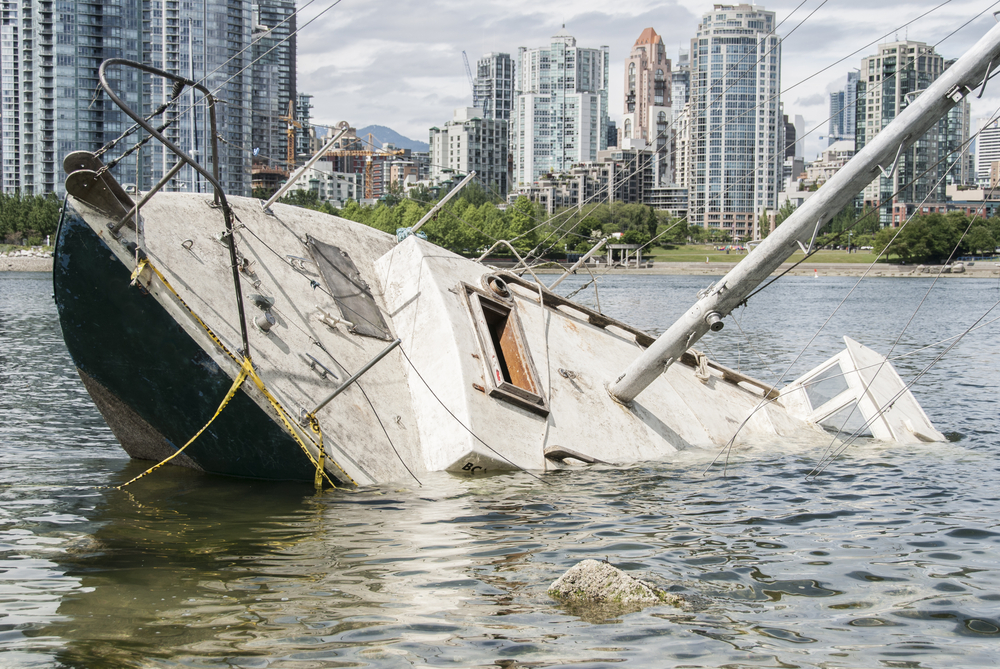
Given the increasing rate in alcohol-related accidents on the waters this boating season, it’s become apparent that many boaters are not engaging in safe practices while operating their vessels and personal water crafts, and are thus placing their lives and that of countless other individuals at risk of severe if not fatal injuries.
As each boating accident lawyer at our firm, Lipcon, Margulies & Winkleman, P.A. unfortunately knows, all too often it takes several serious accident to bring about the changes that eventually result in a safer and more enjoyable experience for those that follow in the wake of the newly regulated activity. Knowing this, our attorneys were pleased to learn that Illinois Gov. Pat Quinn has decided to take action to reduce the number of BUI-related accidents in his state’s water ways and has signed a bill that will crack down on intoxicated boaters like never before.
On Sunday, Gov. Quinn signed a BUI bill that will require motorboat operators involved in serious or fatal accidents to consent to chemical testing. The bill requires boaters to provide blood, breath or urine samples in order to determine their blood-alcohol content (BAC) level or drug content to better determine whether they were boating while under the influence. However, the real change lies in the penalties that boaters will now face if discovered to have been intoxicated at the time of the accident.
Illinois boaters who refuse to submit to testing, and those whose BAC level exceeds the legal limit of 0.08% or who test positive for drugs in the wake of a serious or fatal accident will once the law goes into effect, have their driver’s license suspended. Not their boating license, but their actual driver’s license. This should serve as a much greater deterrent for boaters to operate a vessel while intoxicated and will hopefully reduce the rate of alcohol-related accidents. The new Law goes into effect Jan 1, 2014.
Although refusing to submit to alcohol or drug testing can be used against a boater in Illinois, the state currently does not have any law in place that will affect a boater’s driver’s license when caught operating a boat under the influence. So even if they are arrested for BUI and lose boating privileges, they could still drive car. However, come January 1, that will no longer be the case. Losing one’s driver’s license is a much more serious consequence than losing one’s boating privileges, as not only does it affect one’s ability to move about as freely as one does when one can drive a car, but it also puts at risk one’s ability to get to work, and for some professions, possibly even one’s job security.
We can only hope Illinois next revamps all of its other boating laws as currently Illinois does not require field sobriety tests to be conducted on shore. This means that if a boater is in fact under the influence, once they reach land, they may not even be tested for alcohol or drug consumption – a critical error in the law that has led to boaters involved in serious and even fatal accidents walking away from their crimes in the past. Hopefully this lope hole in the state boating laws will be closed so that those responsible for the injuries and deaths of innocent people can more readily be held accountable for their negligent and wrongful actions.
The new law follows the tragic BUI death of 10-year-old Tony Borcia, who was killed by a drunken boater while riding an inner tube on the Chain O’ Lakes in northern Lake County last year.
The boater, David Hatyina, was operating a motorboat while under the influence and was sentenced to 10 years in prison.
“We enact this law in Tony’s memory,” said Gov. Quinn while announcing the approval of the bill this weekend.
Hopefully boaters in Illinois will think twice before drinking and manning the helm of a vessel now, but unfortunately, there is no law that can completely stop people from drinking or consuming drugs while operating a watercraft.
According to statistics released by Gov. Quinn’s office, there were 101 boating accidents in Illinois waters in 2012, resulting in 77 injuries and 17 deaths. Alcohol was found to be a contributing factor in 13 of the accidents and five of the fatalities. It’s important for anyone who is enjoying a water sport or activity to understand that accidents can – and do – happen, not just in Illinois, but I every other state in the union that has navigable bodies of water within their borders. An intoxicated boater is much more likely to engage in reckless behavior, including speeding, entering into no-wake zones, operating their vessel within an unsafe distance of other boaters, and other unsafe actions, than a sober boater is.
All boaters are advised to stay as alert as possible and report any sign of intoxicated boating to the authorities to prevent a tragedy from ensuing. Boaters should also wear life jackets at all times and keep children closely monitored. In the event that a crash does occur, having a life jacket can make all the difference in staying alive by keeping victims afloat in the water if they are thrown from their vessels and lose consciousness.
Aside from the BUI law, Gov. Quinn also signed another bill which limits vessel overcrowding. The measure, which goes into effect immediately, clarifies that anyone being towed by a vessel, such as a tuber or water skier, will be included in the total number of passengers for that boat. This will ensure that boaters follow their vessel’s carrying capacity stipulations and hopefully reduce boating accidents caused by overcrowding vessels.
Unfortunately, despite Gov. Quinn’s good intentions, there are far too many inconsistencies with state boating laws, which can cause confusion as to what kind of actions or behaviors are punishable, what a boater can get away with, and even how old a child has to be in order to be able to operate a watercraft. These inconsistencies hinder a victim’s right to obtain justice in the wake of accidents, and allow perpetrators to go unpunished or minimally punished for their actions. This in turn results in victims not being able to get the compensation that they would have been granted in other states with more effective less forgiving laws.
Hopefully one day, maritime law will be regulated to include consistent nationwide boating laws so boaters and accident victims can be fully protected. This isn’t likely to occur anytime soon, but at least victims can take some comfort in knowing they have a right to seek legal help with a boating accident lawyer to fight for the damages they deserve.
Published on July 24, 2013
Categories: Boating Accidents
Get Free
Consultation










